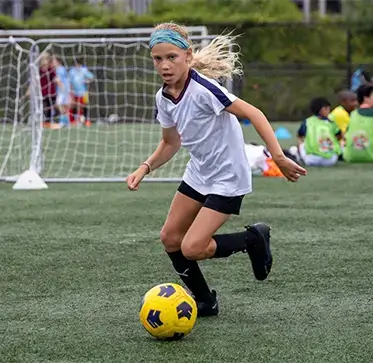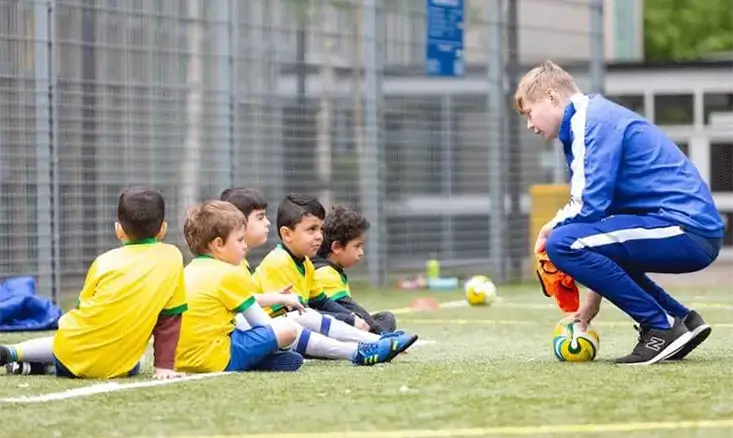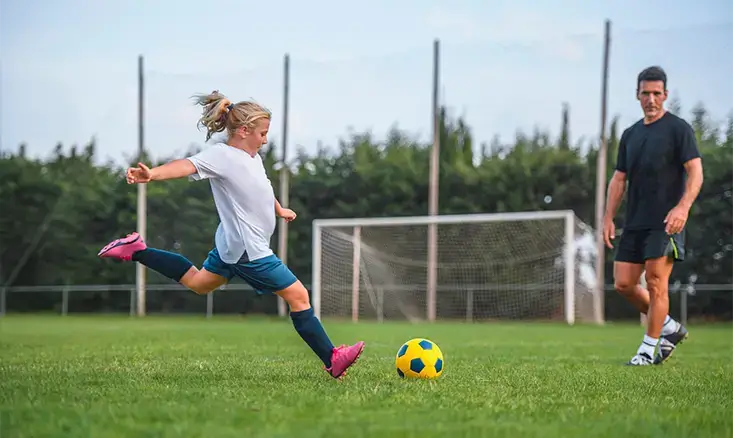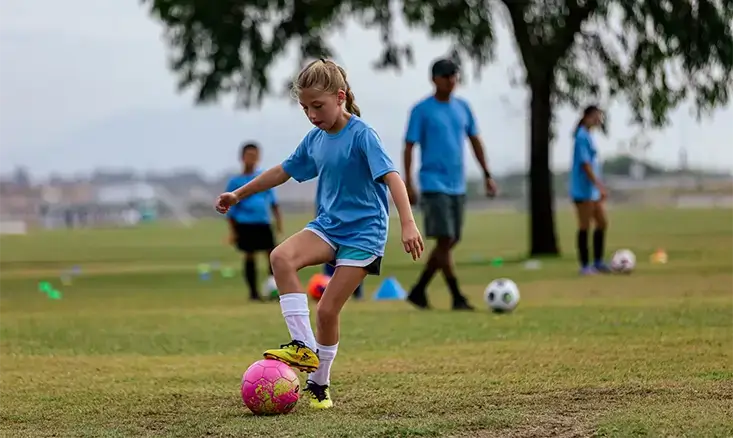12 Questions Every Parent Should Ask Before Choosing a Soccer Camp

CRFC BLOGS
LATEST BLOGS & NEWSLETTERS
12 Questions Every Parent Should Ask Before Choosing a Soccer Camp

We’ve compiled a list of 12 essential questions every parent should ask before committing to a soccer camp.
1. What Age Groups and Skill Levels Does the Camp Cater To?
The first step is ensuring the camp is suitable for your child’s age and experience. Some camps are designed for younger players who are just starting, while others focus on advanced players preparing for competitive leagues.
Ask how the camp organizes participants. Do they separate players by age, skill level, or both? This ensures your child will be challenged appropriately.
2. Who Are the Coaches, and What Are Their Qualifications?
A camp’s coaching staff plays a significant role in shaping your child’s experience. Find out about the coaches’ backgrounds—do they have professional playing experience, coaching certifications, or experience working with kids?
Experienced coaches can provide valuable insights, personalized feedback, and a structured approach to training. Look for camps where the coaches have a track record of helping players develop their skills and confidence.
3. What Is the Camp’s Training Philosophy?
Every camp has its approach to teaching soccer. Some focus on technical skills, while others emphasize tactical understanding, fitness, or team dynamics.
Ask about the camp’s core philosophy. Does it prioritize skill-building or gameplay? Is the environment competitive, or is it more about having fun? The right camp should align with your child’s goals and personality.
4. What Does a Day at Camp Look Like?
Understanding the daily schedule can give you a clear picture of what your child will experience. A well-structured camp should balance training, games, and rest.
Ask for a breakdown of the day. How much time is spent on drills versus scrimmages? Are there breaks for meals and downtime? A balanced schedule ensures your child stays engaged without feeling burnt out.
5. How Are Players Grouped During Camp?
Grouping players appropriately is crucial for their development and confidence. Camps should assess players’ abilities and place them in groups where they can learn and grow effectively.
Find out if the camp evaluates players initially and whether they adjust groupings as needed. Flexible grouping allows players to move to a more suitable level if their skills improve or if they need additional support.

6. What Facilities and Equipment Are Available?
The quality of the facilities can significantly impact your child’s experience. Ask about the condition of the fields and the availability of indoor spaces in case of bad weather.
Some camps provide equipment like soccer balls, while others expect players to bring their own. Knowing what’s available helps you prepare and ensures your child has everything.
7. What Safety Measures Are in Place?
Safety should always be a top priority. Ask about the camp’s safety protocols, including medical staff availability, hydration breaks, and emergency procedures.
Find out how the camp handles injuries and whether they plan for extreme weather conditions, such as heatwaves or sudden storms. A safe environment allows your child to focus on learning and having fun.

8. What Is the Camper-to-Coach Ratio?
The camper-to-coach ratio is a critical factor in determining how much attention your child will receive. A low ratio ensures that each player gets personalized feedback and instruction.
Ideally, the ratio should be no more than 10–15 players per coach. This allows the coaching staff to address individual needs while managing the group effectively.
9. What Is Included in the Camp Fee?
Understanding what’s included in the camp fee helps you avoid surprises. Some camps provide meals, uniforms, or transportation, while others charge extra for these services.
Ask for a detailed breakdown of the costs. Are there additional fees for special activities or equipment? Transparency in pricing ensures you can plan your budget effectively.
10. What Opportunities Are There for Social and Team-Building Activities?
Soccer camps aren’t just about improving skills—they’re also a chance for kids to make friends and learn teamwork.
Ask if the camp includes activities that promote social interaction, such as team challenges, group games, or off-field events. These experiences can help your child build lasting friendships and enjoy the camp beyond just the soccer field.
11. What Feedback Will My Child Receive?
Constructive feedback is essential for growth. Some camps provide written evaluations or progress reports, while others rely on verbal feedback during sessions.
Find out how the camp assesses players and whether they offer improvement tips. Camps that provide personalized feedback help players understand their strengths and areas to work on, boosting their confidence and development.
12.What Are the Club’s Reviews and Success Stories?
Finally, research the club’s reputation. Look for online reviews, testimonials, or recommendations from other parents.
A club with a strong reputation and positive feedback is more likely to provide a high-quality experience.

Final Thoughts
Choosing a soccer camp is about more than just finding a place for your child to play—it’s about investing in their growth, confidence, and love for the game. By asking these 12 questions, you can ensure the CRFC camp aligns with your child’s needs and provides a safe, supportive, and enriching environment.
FAQs
What factors should parents consider when choosing a youth soccer camp?
Parents should consider factors such as age groups, skill levels, coaching qualifications, training philosophy, daily schedule, safety measures, camper-to-coach ratio, and cost.
How are participants grouped in youth soccer camps?
Participants are typically grouped based on age, skill level, or both. Some camps also reassess groupings during the program to ensure players are at the most suitable level for their development.
What should parents look for in a soccer camp’s coaching staff?
Parents should look for coaches with professional playing experience, coaching certifications, experience working with children, and a track record of helping players improve their skills and confidence.
What safety measures are in place at soccer camps?
Safety measures often include medical staff availability, hydration breaks, emergency procedures, injury handling, and plans for extreme weather conditions.
What feedback do soccer camps provide to help players improve?
Camps may provide written evaluations, progress reports, or verbal feedback during sessions to help players understand their strengths and areas for improvement.

Did you find this useful?


